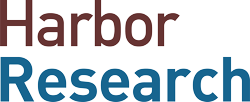Stuck in a Siloed World
As we end the second decade of the 21st century, many of our biggest problems in business and society-at-large still originate directly from our inability to cooperate and collaborate. We continue to live in silos of our own making, despite digital technologies and global networking that offer more opportunities to cooperate than we’ve ever seen before.
Corporations have embraced those technologies, of course, but for another reason—to achieve efficiency. Business leaders spent 30 years optimizing functions and sucking the fat out of the enterprise, making their businesses as lean and profitable as possible. The problem was that in their zeal they didn’t know where to stop. They vacuumed up all the innovation-spending as well.
Today those leaders are pouring their past “savings” into digital transformation, trying to chase the innovation they missed in the previous cycle. How’s that working out?
Many consulting and research firms—including McKinsey, IDC, Gartner, et. al.—have estimated that worldwide investment in digital transformation reached over 1 trillion dollars in 2019. COVID-19 has only accelerated this trend in 2020 and 2021.
And yet, every analyst will tell you that 70% or more of these investments fail to meet their stated goals. Some say the number is closer to 90%. That’s more than a trillion dollars down the drain annually.

Solve This Riddle
Here’s a riddle for you: How is the global rise of nationalism like the widespread failure of digital transformation in business?
The recent triumph of the Tories in England reminds us that the EU is a far more significant experiment in cross-country cooperation than most people realize, and that kind of cooperation is hard work. Beleaguered by the complexities of living in a modern ecosystem, the English elected to return to the simpler world of the past. They chose to regain “control” of their money and borders at the price of isolating themselves. Presumably they will now go on to “make England great again.”
Similarly, our ability to take advantage of digital technology’s true promise remains close to nil. Think about it: The Internet began as a great experiment in collaboration and decentralization; in a mere 20 years we’ve siloed it into Facebook and Google and Amazon. We were offered the opportunity to craft organic global ecosystems; instead, we pedaled backwards as fast as we could, crafting not utopias but dystopias of surveillance capitalism and government-operated facial recognition.
What do isolationist nationalism and digital-transformation failure share? We think the answer is human fear and the need to maintain control—however fantastical those things may actually be.
The Era of Flying Solo Is Over
For at least twenty years, Harbor Research has been telling our clients that “the era of flying solo is over.” But this is hard advice to accept. Compared to flying in a group, flying solo is easy. You have near-complete control over everything.
Of course, most businesses insist that they’re not flying solo. They depend upon many relationships; they’re part of complex value chains. Yes, but those excuses miss the point. Their relationships aren’t organic ecosystems. They’re hub-and-spoke arrangements, and the business in question is always the hub.
“You want us to collaborate and share our data,” we often hear from the C-suite. “But our data’s the new path to profitability.”
Everything they do is really a way to remain dominant and resist fundamental change. Is there any hope of getting out of this rut?

Rethinking Everything
Let’s think in terms of essential resource examples. Optimization of any resource illustrates the value of shared systems and data.
In the early 1960s, Buckminster Fuller said that we had the food and ingenuity to feed the entire world; we just lacked the will. Feeding the world was too hard because it involved rethinking everything. So we let food rot in fields and—yes—in silos, while human beings starved.
Today, the “farm to table” phenomenon suggests that decentralized, distributed systems are the path out of our dilemma. Ditto for distributed energy systems where my excess renewable power goes back to the grid to become your power.
And against the example of the surveillance economy we have excellent counter-examples of a more enlightened approach to data privacy: HIPAA and the GDPR. Those standards may not be working perfectly yet, but everyone agrees they point in the right direction.
Making Money By Solving Problems
What’s the lesson? We’re digging in the wrong mine, the old mine of the past. We keep believing in “clean, beautiful coal” when the obvious answer is to pick up our tools and go dig in the mine of the future.
Enterprises don’t exist to make money. They exist to make money by solving problems. And wow, do we ever have those: Climate change from our past “externalities,” hungry people without food, thirsty people without water, cities with crumbling infrastructure, healthcare systems that don’t work, unprecedented levels of inequality everywhere.
The mountains of money to be made by solving these problems are so high you can’t see the top of them. Companies brave enough to “rethink everything” will be profitable beyond their wildest dreams. And the world will be a much better place.
The only thing in the way is us. ◆
This essay is supported by our Innovations PDF “Biomimicry in Tech Innovations” and the accompanying podcast.
Fill out the form below to download it for free.




